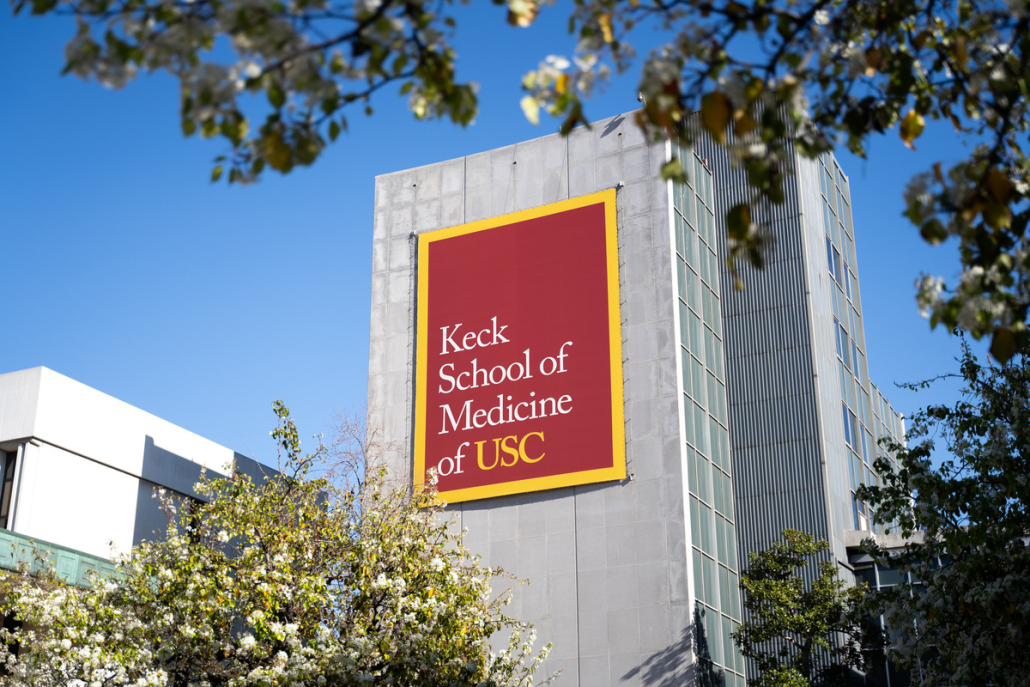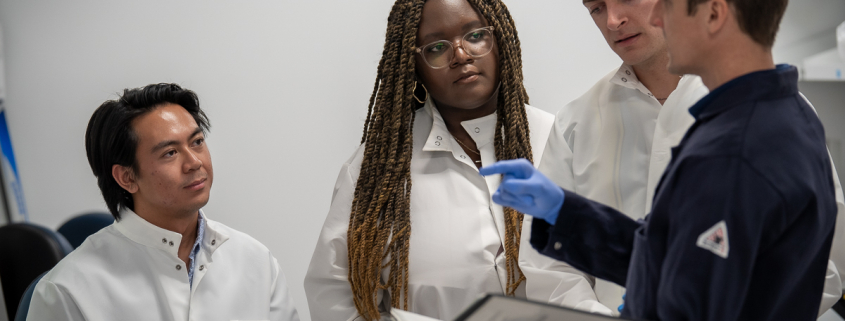USC receives $2.9 million grant for diversity in regenerative medicine

In September, USC received a $2.9 million grant from the California Institute for Regenerative Medicine to establish a program that trains students from underrepresented backgrounds for careers in regenerative medicine. Out of the 14 institutions that received CIRM grants, USC was the only private university.
The multidisciplinary program — USC COMPASS: Creating Opportunities through Mentorship and Partnership Across Stem Cell Science — will bring together professors and resources from the Viterbi School of Engineering, the Keck School of Medicine and the Dornsife College of Letters, Arts and Sciences.
“It’s a catch-all. It’s not just a program for students who are pre-med and want to go to medical school or even know that they want to go to graduate school,” said Senta Georgia, COMPASS director and assistant professor of pediatrics and stem cell biology and regenerative medicine at the Keck School of Medicine. “It is a program that will give students the opportunity to do research with the labs that are affiliated with our program, and get in-depth training to the breadth of careers and opportunities within regenerative medicine so that we can start to kind of tip this balance of the scales and see more of these underrepresented people in the in the industry.”
The two-year program will welcome its initial cohort of 10 rising juniors this summer. Scholars will receive an $8,000 stipend for their summer research, a $1,000 monthly stipend throughout the school year and a $10,000 tuition credit.
The COMPASS application will go live by Jan. 15, 2023, on www.compass.usc.edu. The leadership team is currently finalizing the program’s website, which will explain the process for submitting applications and detail the components of the program: coursework, laboratory research, mentorship, community outreach opportunities and a capstone project.
“We are particularly interested in recruiting students that wouldn’t necessarily think to be involved in this kind of a program,” said Francesca Mariani, COMPASS co-director and associate professor of stem cell biology and regenerative medicine at the Keck School of Medicine. “We’ll be reaching out to the many centers at USC that support its students, ranging from students with disability, LGBTQ+ students and students from racial groups that are typically underrepresented in science.”
Scholars will pursue 12 units of required coursework and electives. Additionally, a proposed minor in stem cell biology and regenerative medicine is under review by the curriculum office. Scholars will complete most of the credits for the proposed minor through their required coursework, but all USC undergraduates will be able to declare the minor should it be approved.
The program provides multiple levels of mentorship in terms of career preparation and exposes students to various facets of the discipline. Scholars have access to a council of mentors from underrepresented backgrounds and external mentors from different facets of government, industry and academia. Under the guidance of a research advisor and mentor, scholars will have access to over 60 labs across University Park Campus, Children’s Hospital Los Angeles and Health Sciences Campus.

“We have people from all of the different departments working on aging, metabolism, cancer, stem cells, Alzheimer’s, diabetes, muscle regeneration, heart regeneration, intestinal regeneration, colon cancer, inflammatory bowel disease, craniofacial biology, etc.,” Georgia said. “If you are interested in it, we have a mentor and we have a lab that is also interested in it.”
Taylor Collins, a senior majoring in global health, serves as the first author at the USC Stem Cell Georgia Lab. Collins began her research with Georgia on the correlation between diabetes and coronavirus in the lab as a part of USC’s Bridging the Gaps — a summer research program for underrepresented students within medicine and the biological sciences. Collins said she wishes she could have joined COMPASS and recognizes the unique advantage it provides undergraduate students interested in research as a two-year program.
“A lot of the research opportunities are over their first summer and then that’s it, there’s no more connection,” Collins said. “Whenever you’re only working for a month, you’re just assisting but whenever you’re on one project for two years, you can actually be considered for publication. It shows that not only did you do the work, but you were really instrumental in putting together the project as a whole.”
Collins said it is important to increase minority representation in medical research because many research projects are based on “majority white or male populations,” preventing the results from being truly representative.
Mariani said stem cell biologists from around the world will lead seminars at USC presenting their cutting-edge research.
Participation in the COMPASS program can serve as a segue to enrolling in the Stem Cell Biology and Regenerative Medicine Master of Science program as a progressive degree student.
“We can help advise students regarding post-graduate programs if they are interested,” Mariani said. “Students may even be able to use their tuition remission for some of our master’s program courses.”

